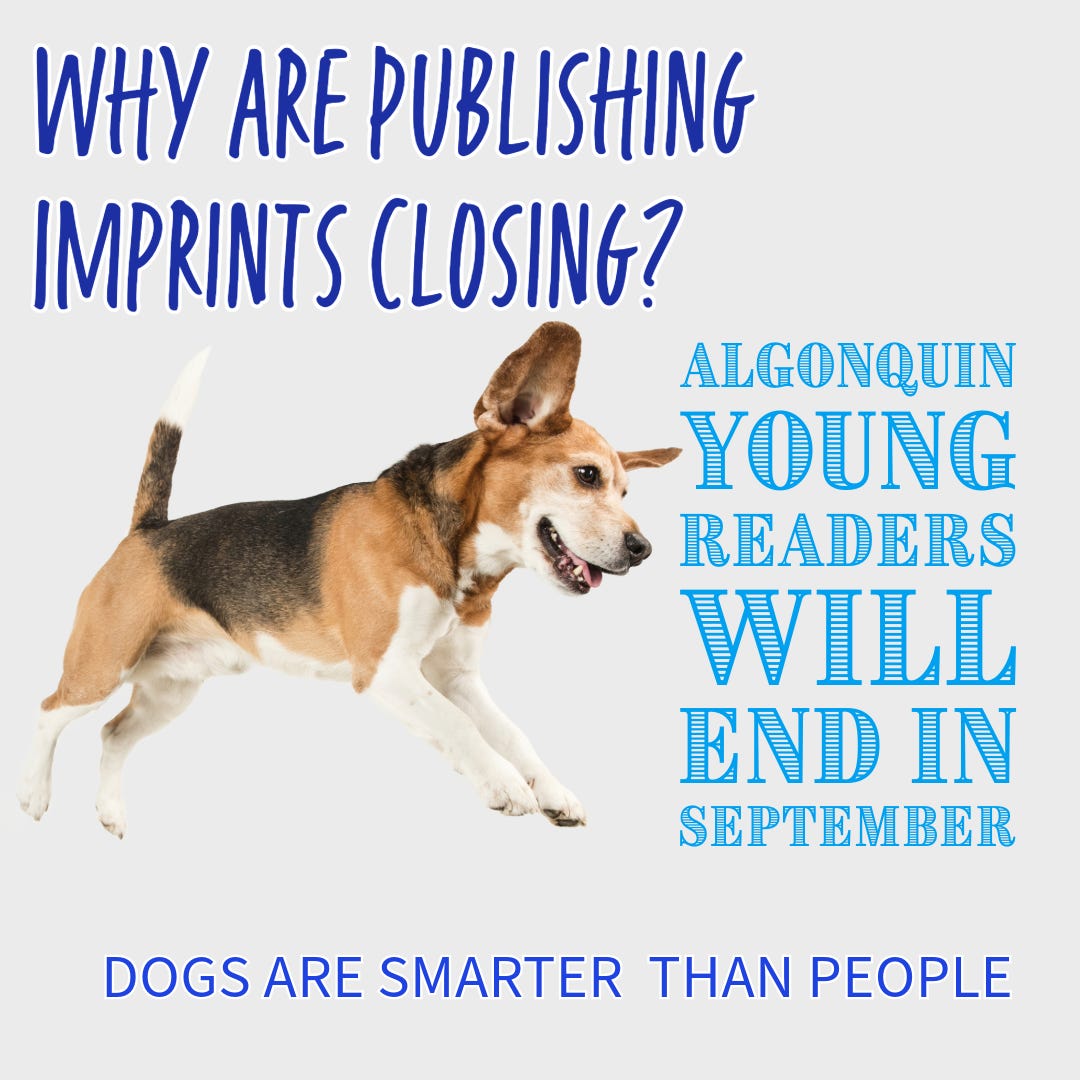Why Are Publishing Imprints Closing?
Algonquin Young Readers Will End in September
The traditional book publishing world is a bit like the wild west if the cowboys wore pink-framed eyeglasses and could quote Derrida.
People are heroes. People are let go. Entire divisions of publishing houses close. And so on.
And this continues this week with the changes at Hachette Book Group and its announcement of the closure of Workman: Algonquin Young Readers this September.
According to Editorial Director Cheryl Klein, “Our backlist and all books under contract will be absorbed into the Little, Brown Books for Young Readers list.”
But her team Adah Li, Sarah Alpert, and Shaelyn McDaniel will be gone.
Klein stays as editorial director for the Workman Kids Trade list.
Last week, the New York Times’ Alexandra Alter wrote,
“Last month, Hachette Book Group laid off seven employees at its Little, Brown imprint, as part of a corporate restructuring. It has since hired three new editors to fill positions at Little, Brown. These changes followed a reshuffling at the top. Little, Brown’s former editor in chief, Judy Clain, left to run an imprint at Simon & Schuster in January, and in March, Sally Kim, who previously worked as the publisher of Putnam, a Penguin Random House imprint, was appointed as the president and publisher of Little, Brown, becoming the first woman of color to lead the imprint.”
An imprint like Algonquin Young Readers is the way a publisher groups and markets books within the larger umbrella (in this case Workman, which is within the Hachette publishing group).
When an imprint like AYR ends, the authors feel stranded—editor-less—and that can be pretty scary.
Last summer, Penguin Random House (PRH) said it was merging Razorbill into Putnam Children’s; HarperCollins closed Inkyard formerly known as Harlequin Teen.
It’s usually about sales. Traditional publishers rely on sales to pay employees, pay for the books produced, pay the authors, and if the sales are not big enough? Things change. Sometimes it’s about personnel. Sometimes it’s about vision.
While it absolutely stinks for the people who lose their jobs or the authors who lose their inprint and people, it doesn’t necessarily mean that the sky is falling for an entire industry. It means things are shifting around.
DOG TIP FOR LIFE
Sometimes where you end up is better than where you started.- Mr. Murphy
RANDOM THOUGHT LINK
That Bored Panda article is here.
SHOUT OUT!
The music we’ve clipped and shortened in this podcast is awesome and is made available through the Creative Commons License.
Here’s a link to that and the artist’s website. Who is this artist and what is this song? It’s “Summer Spliff” by Broke For Free.





